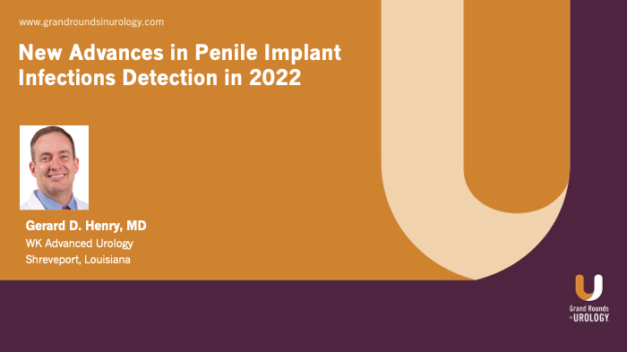New Advances in Penile Implant Infections Detection in 2022
In conversation with A. Lenore Ackerman, MD, PhD, Assistant Professor of Urology and Director of Research in the Division of Female Pelvic Medicine and Reconstructive Surgery at the University of California, Los Angeles, Gerard D. Henry, MD, a urologist with WK Advanced Urology in Shreveport, Louisiana, and President of the Louisiana Urological Society, provides an update on his research into the detection of penile implant infections. Dr. Henry explains that bacterial infection is more common than urologists realized, noting how, 20 years ago, he and his colleagues found a biofilm on the penile implants of patients who appeared to just be experiencing mechanical failure. He then describes a study comparing next generation sequencing (NGS) versus traditional culture in penile implants and suggests that NGS might be the new gold standard for assessing penile implant infections since it can identify not only what bacteria are present, but also the abundance of bacteria. Dr. Henry highlights that NGS has demonstrated that the main form of bacteria affecting penile implants is not Staphylococcus epidermidis, as long believed, and that Escherichia coli and Pseudomonas are more common. He argues that by more specifically identifying these bacteria, urologists may be able to better treat patients and avoid having to remove implants. Dr. Henry then introduces a new, currently-recruiting, prospective, randomized study of next generation sequencing versus traditional cultures for clinically infected penile implants and the impact of culture identification on outcomes. The discussion concludes with a question-and-answer session in which Dr. Ackerman asks about outcomes in the upcoming trial, other potential applications of NGS in urology, and the potential source of the bacteria identified by NGS.
Read More

